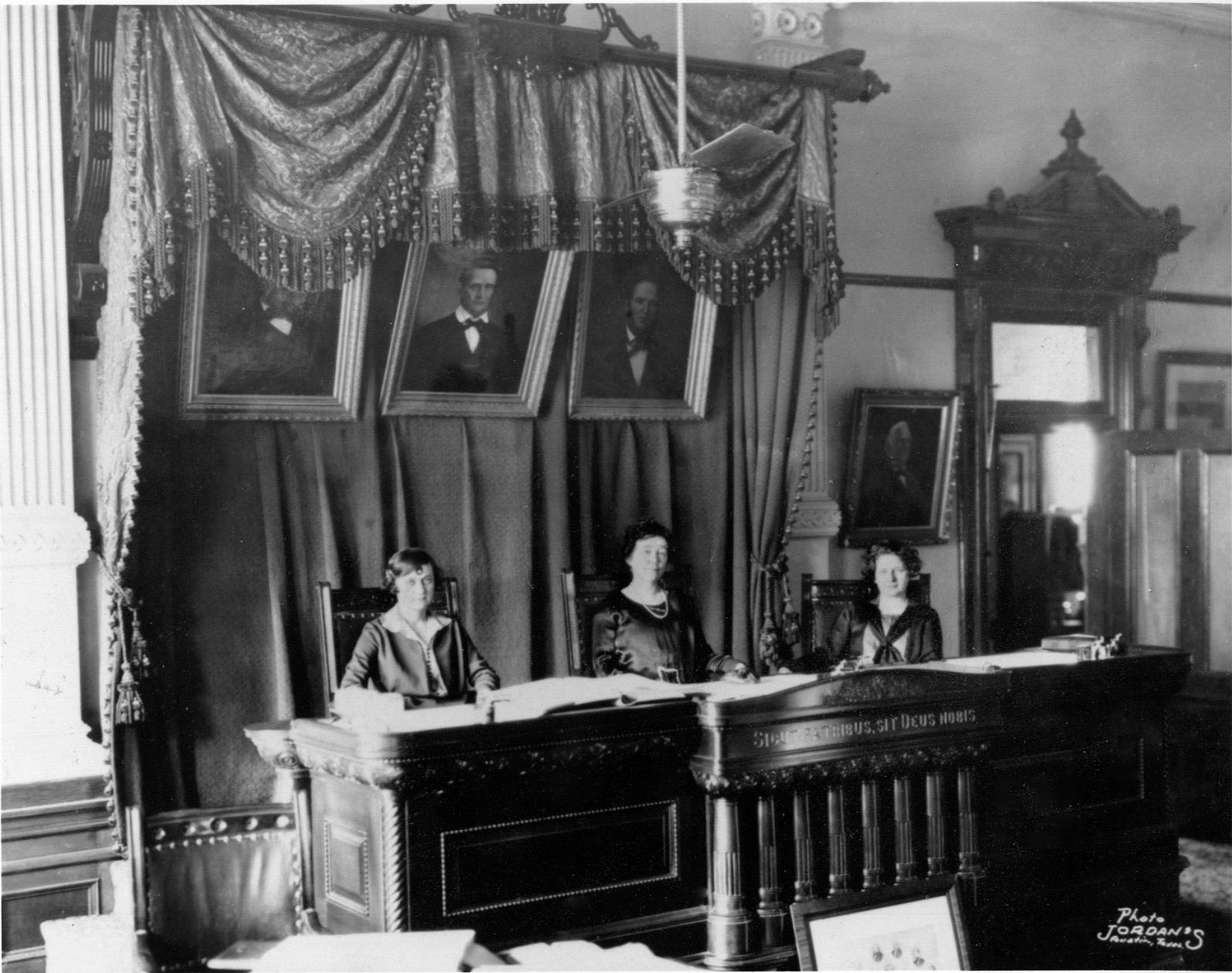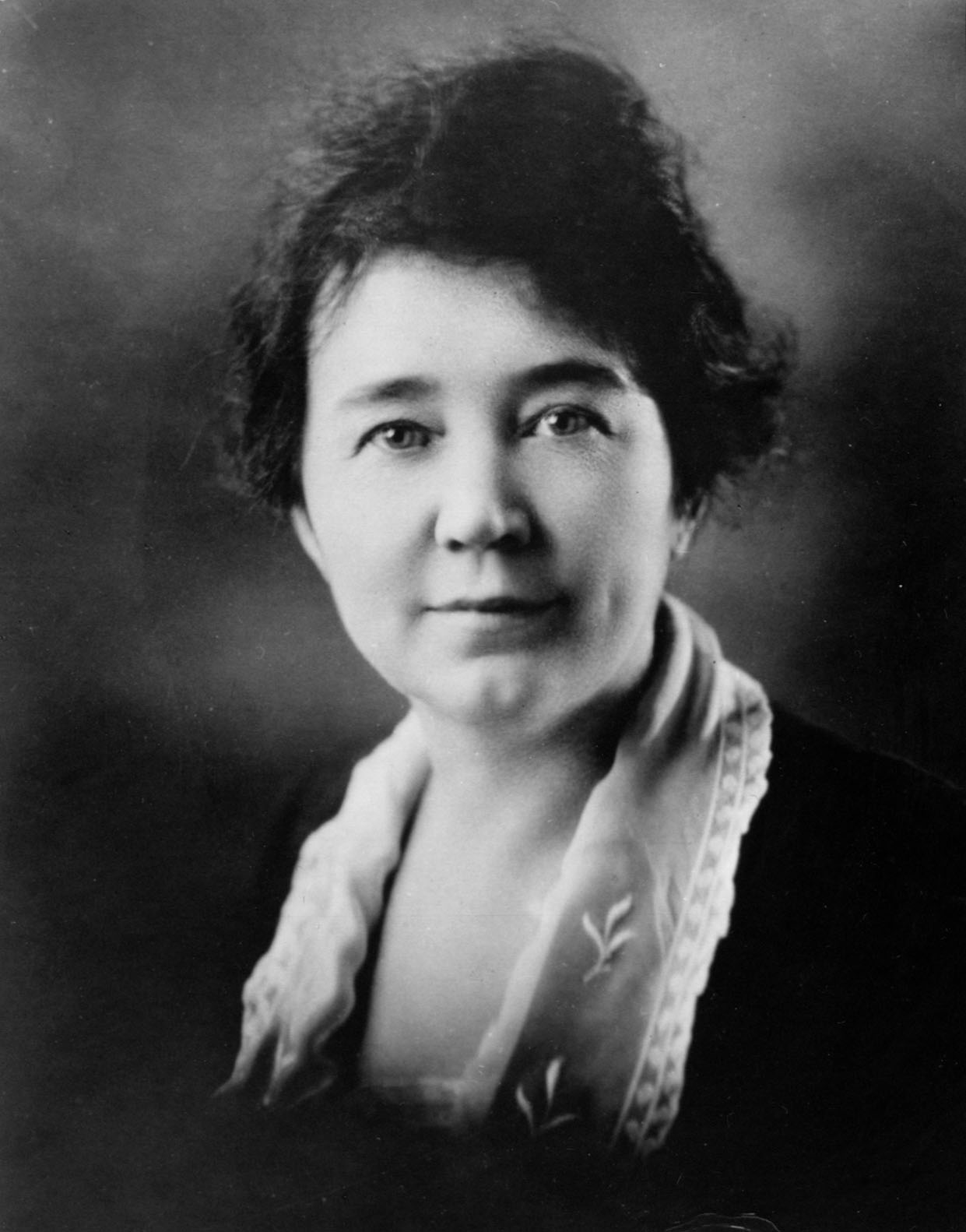Court History

The only All-Woman Supreme Court in Texas was appointed by Gov. Pat M. Neff in 1925 to hear the case W. T. Johnson et al. v. J. M. Darr et al. The case focused on whether trustees of the fraternal organization Woodmen of the World (Darr et al.) were entitled to two tracts of land in El Paso. After a trial court granted the trustees only one tract, the El Paso Court of Civil Appeals overruled and awarded them full title to both tracts. The case then was submitted on appeal to the state Supreme Court. Johnson v. Darr presented a problem to the three-member, all-male Supreme Court. The Woodmen of the World was a powerful political organization in Texas, and its membership included numerous elected officials. In 1924, when the Darr case made its way to the Supreme Court, all three of its justices were Woodmen members and were, by state law, disqualified from hearing the case. State law also provided that in cases where the elected judges were disqualified, the governor was to act immediately to appoint special justices. Governor Neff, however, found it difficult to name suitable replacements quickly. Beginning in March 1924, when the court disqualified itself, he made numerous attempts to find justices for the special court, but discovered, with increasing frustration, that each prominent male attorney he approached was also a member of the Woodmen. Ultimately, Neff decided that he would appoint women attorneys to the special court, as the Woodmen was a male-only organization and females would be safe from disqualification. Neff had named women to serve on numerous state boards and was also the first Texas governor to appoint a woman as his private secretary. Still, the use of female justices was not common, and Neff resorted to it only after determining that he simply would not be able to appoint qualified men to the court.

On January 1, 1925, shortly before his term as governor ended, Neff officially named three women to serve on the special court: Nellie Robertson of Granbury, Edith Wilmans of Dallas, and Hortense Ward of Houston. Robertson was named special chief justice, with the other two women to serve as special associate justices, and Neff specified that the first hearing in the case would occur one week later. Apparently, however, Neff had not verified that each of his appointees had seven years of legal experience, a requirement stipulated by the state constitution for any Supreme Court justice. After several resignations and reappointments, the special court was finally set with Ward as chief justice and Ruth V. Brazzil of Galveston and Hattie L. Henenberg of Dallas as associate justices. These were all well-established lawyers. The appointments were finalized one day before the first hearing in the case.
The All-Woman Supreme Court met in the state Capitol on January 8, 1925, to hear court procedure reviewed by Chief Justice C. M. Cureton and to determine if a writ of error would be granted in the case. The women agreed to review the decision of the El Paso Court of Appeals, and they set January 30 as the date for oral argument before the court by the opposing attorneys, both from El Paso. The special court announced its ruling on May 23, 1925, upholding the El Paso appeals court and allowing the Woodmen of the World full title to the two tracts. Ward, as chief justice, wrote the majority opinion in the case, with the two associate justices submitting concurring opinions. The decision was based primarily on upholding the state law on registration of deeds and trust agreements, specifically the provision that recognized the validity of verbal secret trusts in land without ownership being recorded with a county clerk. Soon after the All-Woman Supreme Court began its work, the state's first woman governor, Miriam A. Ferguson, took office. The novelty of an all-woman court, believed to have been the only such court to exist in the country, and the election of a woman to the state's highest office, gave some distinction to the role of women in Texas politics. It was some thirty years later, however, before Texas women were allowed to serve on juries. And it was not until 1982 that a woman was named to serve full-time on the state Supreme Court, when Gov. William Clements appointed a woman to fill an unexpired term on the court.
Citation: Debbie Mauldin Cottrell, "ALL-WOMAN SUPREME COURT," Handbook of Texas Online accessed September 26, 2014. Uploaded on June 9, 2010. Published by the Texas State Historical Association.